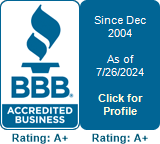By Tony Wilbert
CoStar News
December 29, 2020 | 11:45 AM
As the new president of the Institute of Real Estate Management, known as IREM, Chip
Watts knows the group's 20,000 members will play a key role as companies across the
United States and globe begin bringing employees back to office towers, business parks,
retail shops and other commercial properties in 2021.
Watts, president of Birmingham, Alabama-based Watts Realty Co., was installed at
IREM's 2021 president at the group's annual governance meeting in the fall. A fourth-generation
real estate agent, he served as the 2008 president of IREM's Alabama chapter
and also a two-year term as an IREM regional vice president.
Chicago-based IREM is an international institute for property and asset managers that
provides knowledge and resources to help operate properties. IREM provides guidance
and information "to take on real estate management’s most dynamic challenges,"
according to the institute's fact sheet.
The group's members, who are U.S. certified property managers, oversee 12 billion
square feet of commercial space and 11.6 million residential units.
During a panel at the National Association of Real Estate Editors' virtual conference
earlier this month, Watts said the safe reopening and reoccupying of tenant spaces in
commercial properties will be a top priority for the group next year.
"All of our members are property managers, so being property managers we’re all on the
front lines when it comes down to getting tenants and their employees back to the office
safely," Watts said during the NAREE panel. "That’s absolutely our No. 1 goal — to get
everyone back in safely."
The coronavirus pandemic has shined a bright spotlight on property managers and
others responsible for maintaining a safe and healthy work environment for millions of
workers, renters and shoppers in the United States and other countries.
With members in China, IREM jumped into action in January, before the wide-scale
coronavirus outbreak in the United States. From Jan. 24-26, the IREM China Shanghai
chapter joined Certified Commercial Investment Members, known as CCIM, to raise
$59,500 to support the fight against the contagious virus.
Watts said IREM members in the United States would leverage the experiences of the
group's members in China, where large numbers of workers have returned to offices.
They also have benefited from the insight and experience of Canadian members who
battled the severe acute respiratory syndrome, or SARS, outbreak in Toronto in 2003, he
said.
"In China, they use the term ‘normalize.' They say they’ve already gone back normal, to
pre-COVID days," Watts said on the NAREE panel. "They’ve already moved past the
pandemic and back to a more normalized situation."
Because the novel coronavirus originated in China and the country has gotten the virus
under control, it is ahead of the United States in terms of workers reoccupying
work-spaces, Watts said.
"Our China members have been very positive on their reentry into their offices. They
have not indicated there has been a large change in how they operate in the office
community now," Watts said. "We may be three or four months behind them before we
figure out where we’re going to be in the United States."
In the United States, as some states issue new stay-at-home orders as coronavirus cases
spike once again, IREM expects large-scale reoccupation of offices to vary by region.
"Across the United States, California and New York are going to be quite different from
Georgia and Birmingham, Alabama, where I am," Watts said. "While the basics of
opening an office and getting people to work safely are relatively universal, there’s a lot
of differences across the country with regard to rules and regulations and what the
minimum standards to ensure that office buildings are in compliance with local and
state guidance."
The institute created a guide to help its members reopen the commercial spaces and
assets they manage. As employees return to office buildings, elevators and work-spaces,
their employers will have to incorporate social distancing and new traffic flows into their
offices, he said.
"These rules and regulations change drastically, and our property managers are there
trying to help our tenants and their employees to get back into their offices safely,"
Watts said.
Part of doing so will be offering guidance on how to install new equipment and
implement new practices designed to slow the spread of the virus, Watts said.
"A lot of people are retrofitting their buildings for the touch-less and contact-less
issues," he said. "You can see that our budgets have gone up in our cleaning costs and
the staffing that we have to provide for that."
One of the most-asked questions IREM has received from members is about how many
people should ride an elevator at one time, Watts said. "Ultimately there’s really no
guidance on that, but some of our members said, 'We’ve got four corners so we’re going
to put dots in the four corners of the elevator bay and tell them to turn and face the
corner.' "
As IREM and its members work to help buildings get tenants back in their offices, Watts
said there's no easy or single answer about how to do so.
"It’s murky out there, and we’re working on it on a case-by-case basis," he said.
twilbert@costar.com
@twilbert




